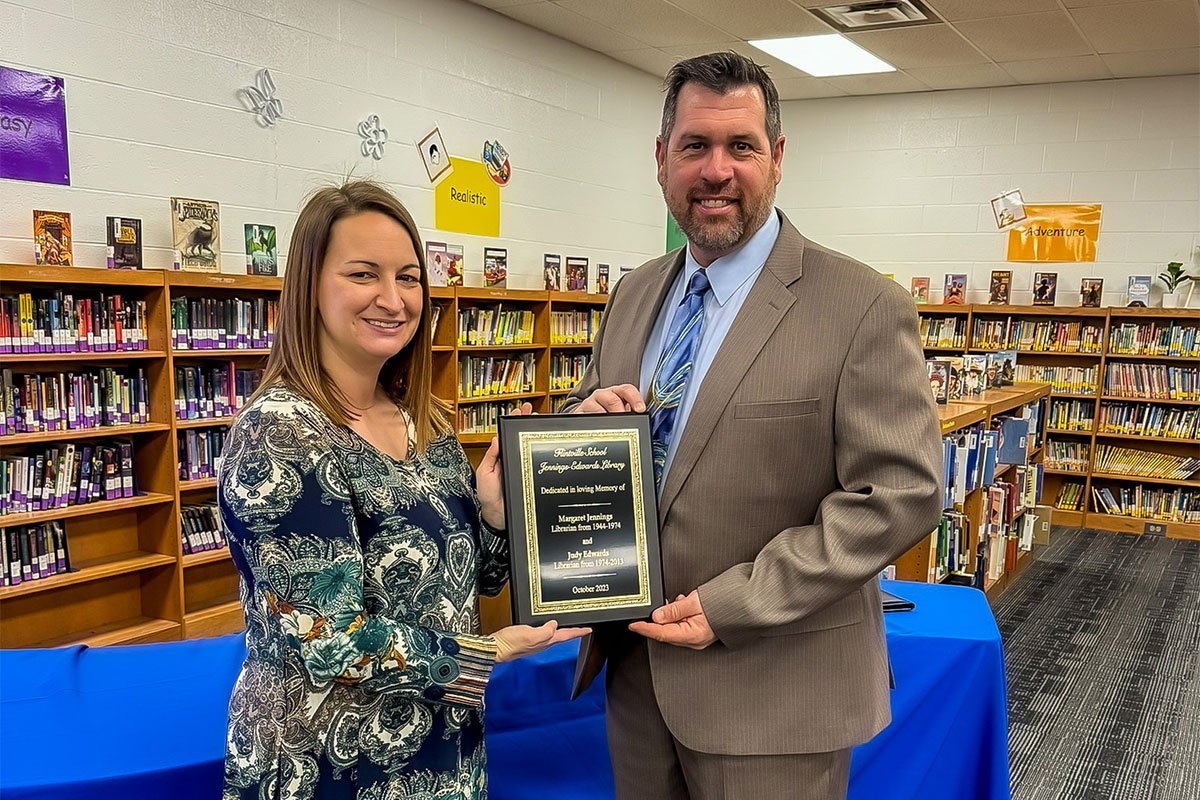THE FLINTVILLE School library hums with the quiet energy of modern education. Today’s school libraries hold not just books but endless opportunities for wonder and exploration. Bookcases line the walls, filled with books whose spines stand at varying degrees of attention, inviting discovery. Plush carpet centers provide soft spaces where young hands and minds can connect vibrant puzzle pieces or collaborate on engineering projects. A smart screen flickers to life, adding interactive content to the librarian’s presentation. The open floor plan accommodates both individual study and collaborative group work, seamlessly transitioning between focused reading and engaging teamwork.
It’s a stark contrast to the library of decades past. In the 1940s through the early 1970s, towering wooden bookshelves dominated the space. Card catalogs, now obsolete, were meticulously maintained so that students could locate resources. A hushed reverence for learning and literature was as pungent as the distinct aroma of aged paper.
As the years progressed into the late 1970s and beyond, the library began its transformation. Audio-visual equipment and early computers gradually appeared, signaling the shift toward a more diverse array of educational resources. The once-rigid atmosphere softened, encouraging a more relaxed approach to learning while maintaining its core mission of supporting student education.
In January 2024, Flintville School honored two remarkable women who shaped students’ hearts and minds through this evolution by dedicating its recently renovated library to Margaret Jennings, who served from 1944 to 1974, and Judy Edwards, whose tenure spanned from 1974 to 2013. These educators witnessed and actively guided the school’s library through significant educational approaches and technological changes.

Jennings, a formidable presence in Flintville High School from 1944 to 1974, left an indelible mark on her students. Once a self-described “rough country boy,” Johnny Edwards found his life transformed by her guidance.
“I was going backward, and I probably wouldn’t have graduated,” he admitted with a hint of wonder still in his voice. “Miss Jennings got me reading [my] sophomore year, and I’d take home two or three books every weekend. By the time I graduated, I’d read nearly two-thirds of the library books. To me, reading teaches you about life. You can learn so much when you sit down to read. I wanted to learn what everything was about.”
Johnny’s love of reading followed him throughout his Air Force service and civilian life. Little could he know when he graduated, but his life and the school library’s place in it would extend beyond his high school memories of Miss Jennings’ positive influence and dedication.
Jennifer Murdock, Jennings’ great-niece, said, “She said a book could take you anywhere you want to go. Even more than that, during my years of teaching, I kept in mind what an impact teachers have on their students and the positive influence teachers are privileged to have on future generations of students.”
Jennings, who taught English before taking over as librarian, loved her students, literature, and reading, all of which combined to star in the plays she directed. Flintville School Principal David Golden spoke to her former students, who remembered her fondly. From running a tight ship to staying after school to ensure students finished assignments and prepared for graduation, she earned the title “legend,” in their opinion.
Upon her retirement, teacher Judy Edwards, Johnny Edwards’ wife, sat at the circulation desk.

At the ceremony to dedicate the library to the two, Principal Golden said, “Mrs. Judy Edwards served as teacher and librarian for Flintville High School, Flintville Jr. High, and our current configuration from 1974-2013. She is well known for the love of her students of all ages, for promoting reading and writing, and for playing a very important role in the early stages of our all-inclusive playground.”
Judy, like Jennings, expected the best of her students. She expected it of herself and all of those around her. She was known for getting things done.
Her husband, Johnny, spent countless after-school hours with her in the library, assisting her as she rotated materials and displays for themes and seasons. When the library needed repainting, the two went to work.
“We painted the whole library in the old high school on the weekends of Christmas break. There was no heat on, so we used little space heaters trying to keep warm,” he shared.
He continued, “When they closed the elementary school across the road and built the new one, they brought all the books across, and we spent the whole summer re-cataloging and reshelving all the books. She loved the kids, and the library was always her thing.”
Today, the Flintville School library continues to welcome students to an ever-growing place of knowledge, exploration, and wonder. Like its namesakes, the Jennings-Edwards Library continues to adapt and evolve, meeting the changing needs of each new generation of learners. Yet, at its core, it remains a place of discovery, growth, and inspiration — a living tribute to two women who understood that a library is as much a repository of books as a gateway to endless possibilities. The space embodies the enduring legacy of Jennings and Judy, seamlessly connecting Flintville School’s rich educational past with its dynamic present and promising future. GN






























































































































































































































